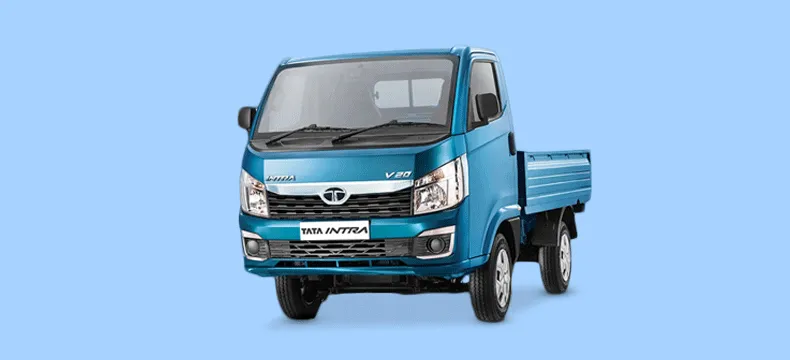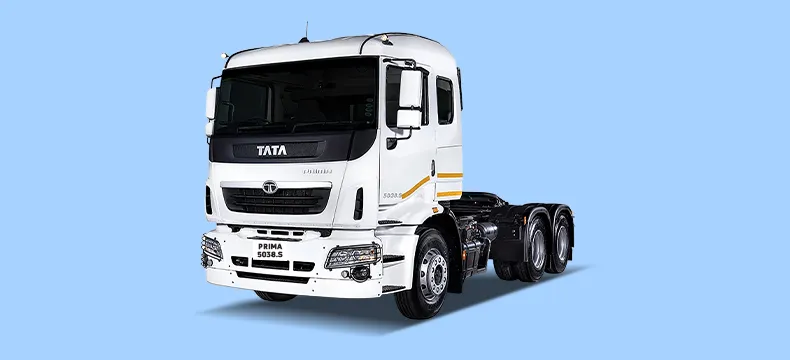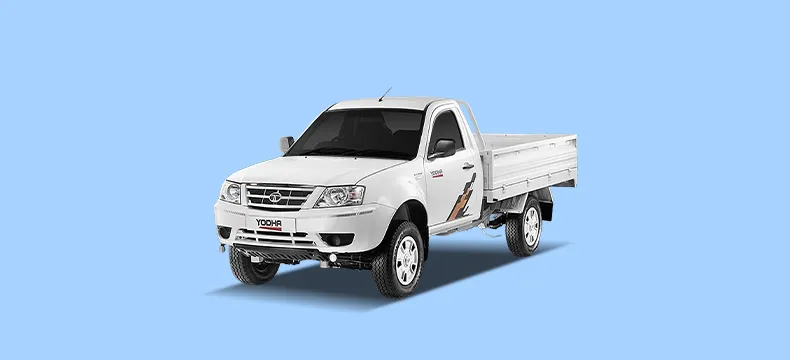4 Dec 2025

Overcoming Infrastructure Challenges: Small Cargo Trucks in Kenya's Remote Areas
- Tata Motors
- 29 Jul 2024
- COMMERCIAL VEHICLE
Introduction
Small cargo trucks play a crucial role in connecting Kenya's remote communities to essential services and economic opportunities. With a significant percentage of Kenya's population living in rural areas, small trucks are often the only viable option for transporting goods, commodities, and providing services like water delivery, waste management, and electricity connectivity across rough terrain and poorly developed infrastructure.
However, the lack of proper roads and infrastructure in remote regions poses significant challenges for small truck operations and accessibility. Overcoming these challenges is essential for socio-economic development as small trucks quite literally connect the last mile in Kenya. Enhancing their reach and efficiency can uplift remote communities by improving access to basic amenities, healthcare, education while also enabling trade and economic participation.
Challenges faced by small cargo trucks in remote areas
-
Rugged terrain:
Remote areas often have hilly, uneven and undulating terrain with poor road conditions full of boulders, stones, gullies etc. This damages small trucks and causes frequent breakdowns, significantly slowing down movement.
-
Underdeveloped infrastructure:
Lack of all-weather motorable roads, robust bridges, and connectivity infrastructure like electricity and communication networks hampers accessibility and operations.
-
Inclement weather:
Harsh weather conditions like heavy rainfall and flooding can make dirt roads inaccessible. This isolates communities when small trucks cannot reach. Lack of repair facilities: Unavailability of repair shops and spare parts in remote areas makes maintenance and repairs difficult. This increases downtime for small trucks.
-
Driver skills gap:
Navigating difficult terrain and handling breakdowns requires driving skills and basic repair knowledge. Many drivers are untrained which affects productivity.
-
Security concerns:
Crime and unrest risks in some regions can deter movement and access. Driver and cargo safety is a key concern.
-
Innovative solutions:
Customizing small cargo trucks for rough terrains To increase durability and reduce breakdowns in rough conditions, small trucks can be customized with:
-
Rugged tires with deeper treads providing better grip and traction on uneven roads.
-
Reinforced suspension systems to handle uneven loads and undulating surfaces.
-
Hydro formed chassis and higher ground clearance for preventing underbody damage.
-
Enhanced cooling systems to handle engine overheating across long distances in hot climates.
-
Onboard toolkits with spares and kits for emergency field repairs.
Improving accessibility: Building and maintaining roads for small utility trucks While custom trucks help, building motorable all-weather roads is key for remote accessibility.
-
Understanding the Tata Motors Intra
Tata Intra V20 stands out in the Small Commercial Vehicles segment with its robust 'Premium Tough' design, setting a new benchmark for durability and performance. Powered by a TCIC 4-Stroke, 1.4 CRDI 10 engine that is liquid-cooled, it delivers a power of 70 HP and a peak torque of 140 Nm, ensuring reliable power for various applications such as market load, LPG transport, pharmaceuticals, beverages, and FMCG deliveries. This versatility makes it an ideal choice for last-mile deliveries, where tough performance is crucial.
Equipped with a GBS 65-5/5.07 gearbox with cable shift mechanism offering 5 forward gears and 1 reverse gear, the Intra V20 ensures smooth transmission and efficient power delivery across different driving conditions. It features Electric Power Assisted Steering (EPAS), reducing steering effort and enhancing maneuverability during long trips, thereby improving driver comfort and control.
The truck's design includes a strong chassis and a long load body, capable of carrying a rated payload of 1100 kg. This capacity not only enhances operational efficiency but also contributes to higher profitability per trip, making it easier for businesses to maximize returns on their transportation investments.
Key highlights of the Tata Intra V20 include its robust engine performance, efficient gearbox, EPAS for ease of handling, and D+1 seating configuration and a walk through cabin that prioritizes driver comfort and productivity. These features collectively reinforce its position as a dependable choice in Kenya's logistics landscape, where reliability and versatility are paramount for successful operations in remote and challenging environments.
|
Engine: 1.4-liter 4-stroke CRDI engine, liquid-cooled |
|
Power: 70HP @ 4000 RPM |
|
Torque: 140 Nm @ 1800-3000 RPM |
|
Transmission: GBS 65-5/5.07 gearbox |
|
Gears: 5 forward, 1 reverse |
|
Clutch: 246 sq. cm, 200 mm diameter |
|
Performance: |
|
Gradeability: 30% |
|
Grade Restartability: 23% |
|
Max Speed: 70 km/h |
|
Brakes: |
|
Front: Disc brakes |
|
Rear: Drum brakes (254 mm diameter) |
|
Braking System: Full air S-Cam with automatic adjuster |
|
Suspension: |
|
Front: Semi-elliptical leaf spring with hydraulic double acting telescopic shock absorbers |
|
Rear: Semi-elliptical leaf spring with hydraulic double acting telescopic shock absorbers |
|
Dimensions: |
|
Length: 4.282 meters |
|
Width: 1.639 meters |
|
Height (Unladen): 1.918 meters |
|
Wheelbase: 2250 mm |
|
Ground Clearance: 170 mm |
|
Turning Circle Diameter: 9.5 meters |
|
Payload Capacity: 1100 kg |
|
Fuel Tank Capacity: 35 liters |
|
Cabin: Boltable full forward body shell, AC equipped |
|
Battery: 12V, 55Ah |
|
Seats: Driver and co-driver seats with armrest |
|
Wheels and Tires: |
|
Tires: 165 R14 LT 8PR (Tubeless) |
|
Axles: |
|
Front: Beam tubular construction |
|
Rear: Salisbury type with hypoid gears and semi-floating axle shafts |
|
Axle Final Ratio: 4.88 |
|
Emission: BS4 compliant |
|
Antiroll Bar: Provided at the front |
Conclusion
Small cargo trucks are the arteries connecting Kenya's rural communities to development and growth opportunities. With customized vehicles, improved infrastructure and community participation, the reach to remote areas can be significantly enhanced. This will empower millions across the country by easing access to amenities, healthcare, education, markets and more. The time is ripe for all stakeholders to come together and develop innovative solutions to overcome existing barriers. The social and economic potential unlocked will be truly transformative. As Nelson Mandela said, "It always seems impossible until it is done."
- Tags



















